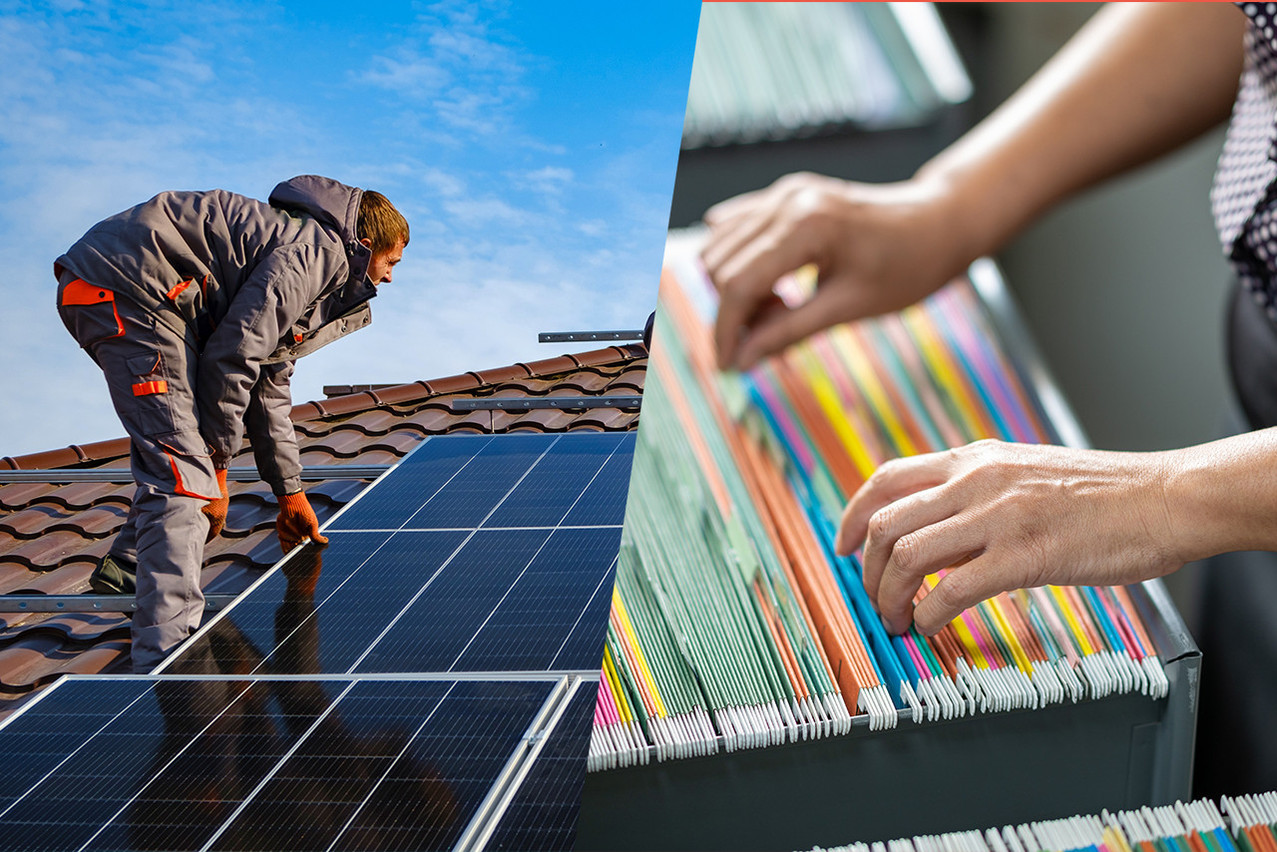623 applications for subsidies for the installation of photovoltaic panels have been sent in since the beginning of the year, environment minister (déi Gréng) revealed in a parliamentary reply on 8 November. By that time, none of them had been processed. 15 applications from 2021 were still pending processing.
"Since then, we have started to work on the applications that were received in January," explained David Glod, deputy director of the Environment Administration (AEV), a week and a half later. The administration estimated that they have worked “on a hundred or so.”
The argument of the lack of personnel put forward by Welfring raises questions, given the extent of the delay. "We have accumulated delays on all the schemes," Glod said. "They have been very successful because they have become more interesting and because there has been more awareness among people", between covid and the energy crisis. “The demand has exploded. These are things we didn't anticipate.”
23 civil servants
23 officials deal with aid applications. Three years ago there were eight. The team deals with subsidies for housing, but also for mobility, for bicycles and electric vehicles. However, only three of them can deal with subsidies for photovoltaic systems. "For bicycles and cars, the requirements are more administrative. For buildings, you need to understand energy performance calculations, technical installations. These are profiles with an engineering background." This is more difficult to find. "They are sought after by design offices.”
The government must also allow all recruitments. It has just authorised the opening of ten posts. The problem: these are fixed-term contracts for two years, paid according to the for technical profiles and . The first category can claim a gross salary of €5,339.85 in the first year of service and €5,580.74 in the second.
The schedules are full until the end of 2023
The upcoming hirings, in addition to the increased use of subcontractors, should speed things up. Today, it takes an average of 11 months to receive support for photovoltaic installations from the PrimeHouse 2017 scheme, one month for electric cars, and 17 months for bicycles, mainly because of "a huge peak in March 2021".
Delays in receiving help, but also its panels
“It takes an average of one hour to process a simple and complete file," said Glod. But officials are often confronted with missing documents. The oldest pending application dates back to 29 January 2018. Is this a sign that the procedure is too complicated?
The form asks for the make and model of the panel, whether the module is mono-crystalline, poly-crystalline or amorphous--terms that not everyone masters.
"We provide the client with all the information needed to complete the application," says Abel Lovasz, manager of Ecoclima, a panel installer. He explains the delays rather by the high demand. "We expect it to increase again in January" with the 25% surcharge on financial aid for photovoltaic installations and the switch to a 3% VAT rate, provided for in the tripartite agreement.
Many people are therefore putting off signing the estimate until next year, even though they are starting to plan the work. "The fact that the aid is not retroactive makes life difficult for us. We don't charge anything and we don't order the equipment because by 1 January, the customer can change his mind," he says.
Even though "in any case, nobody can install panels in a few weeks". The company is contacted 20 to 30 times a month for panels. It employs six installers. "The waiting period is until the end of March. This is due more to a lack of personnel than to a lack of material. This has not prevented suppliers from increasing their prices by "10-15%".
Online applications coming
The same is true of BK Industrie. Demand has "more than doubled", explains Philippe Manck, business manager. "The schedules are full until the end of 2023.” The company of eight fitters receives three to ten requests per day. It also notes a lack of aluminium fasteners, due to the closure of certain foundries, which means it can take six months to receive certain items.
On the subject of aid schemes, "we complete the document for the customer before they send it. In the estimate, we give an estimate of the subsidy that they can deduct.”
Perhaps an online application procedure would simplify things. Why isn't this still possible in 2022? "The process is done on the internet for the installation of electrical charging stations. We have a similar project for energy and bicycle subsidies. Developments like this take time. They are expected to be released in early 2023. This represents a budget of €50,000 to €100,000 for the AEV.” The rest comes from the state's Information Technology Centre, which at the time of publication had not yet specified its own budget.
Another upcoming change is that "discussions are moving in the direction of pre-financing". Currently, aid is only paid after invoicing, mainly to avoid fraud. To avoid having to advance the money, individuals can apply for an interest-free loan. "We have the idea to go further. But it would be a mistake to rush things.”
This story was first published in French on . It has been translated and edited for Delano.
